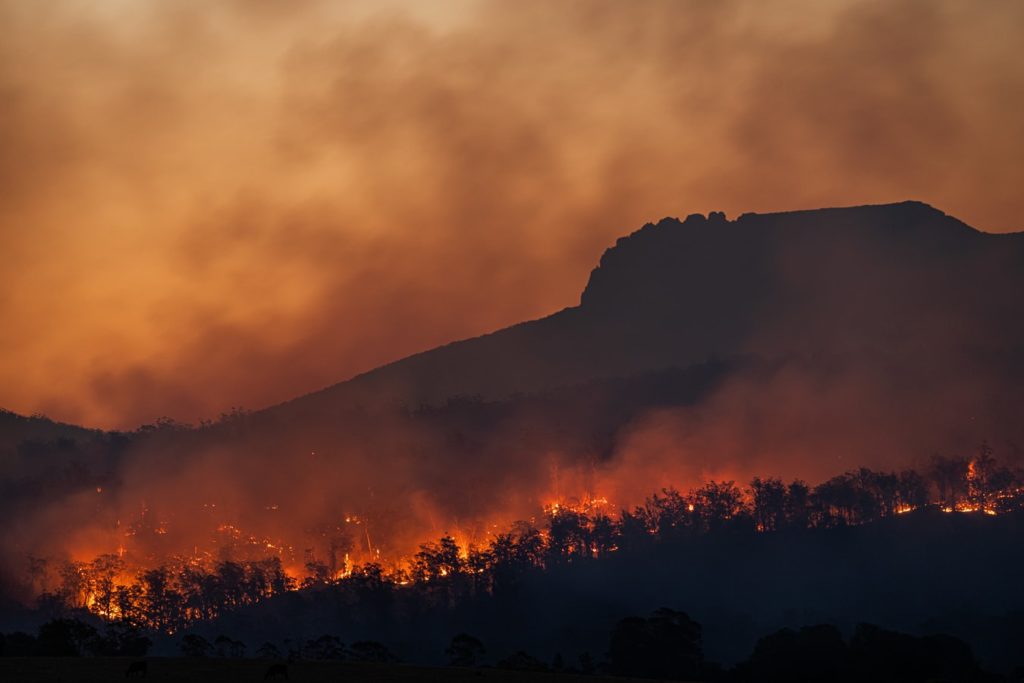By James Hodson –
The latest report (AR6) from Working Group I of the Intergovernmental Panel on Climate Change issued updated guidance on the current state of climate trends and dynamics globally as they pertain to anthropogenic influence on the earth’s core systems. The report, unsurprisingly, concludes with a very high degree of confidence that human influences are causally connected to observed warming trends and higher climate variability over the past 200 years, and that these trends are significantly different from model simulations of the past 2,000 years (without human influence).
Through an extensive literature review, the authors of the report assess 5 possible outcomes stemming from varying levels of Greenhouse Gas emissions over the next century. These 5 extrapolations are simply indicative of the range of outcomes we might reasonably expect, based on the policy and behavioural choices that we make as a global community over the coming years and decades. The models are drawn from those participating in the World Climate Research Program’s CMIP6 (Coupled Model Intercomparison Project, Phase 6), which provides a common platform for data, model development, evaluation, and dissemination.
On the low end of emissions, the “Shared Socio-economic Pathways” (SSP) model 1-1.9 (where 1-1.9 describes the Wattage of radiative forcing expected over each square meter of the earth’s surface) predicts surface warming of around 1.4-1.6C by the end of the 21st Century, with net negative carbon emissions helping to mitigate warming by roughly mid-century. On the high end, SSP5-8.5 predicts surface warming of between 2.5-4.5C by the end of the century, with net emissions increasing to 130Gt of carbon dioxide per year.
Since warming occurs more quickly over land masses (as the oceans take longer to heat), differential pressures are linked to higher weather variability and extremes. Per the report: “Many changes in the climate system become larger in direct relation to increasing global warming. They include increases in the frequency and intensity of hot extremes, marine heatwaves, and heavy precipitation, agricultural and ecological droughts in some regions, and proportion of intense tropical cyclones, as well as reductions in Arctic sea ice, snow cover and permafrost.”
In recent years, higher variability has had devastating effects on crop stability, increased incidence of natural and humanitarian disasters, and increased geopolitical instability. The International Military Council on Climate and Security’s “The World Climate and Security Report, 2021″ released in June, discusses how increased climate pressures place a direct strain on military infrastructure and resources, necessitating strong planning and partnerships to prevent the escalation of risks in the short-medium term. Countries are increasingly reliant on military first-responders to disasters, including in the United States where Wild Fires and tropical storms have wreaked havoc across communities.
The AR6 report, and scientific consensus, all point unequivocally to accelerating global warming being inevitable in the short-to-medium term, and some effects not being reversible for centuries to millennia. There is a critical need to take big steps today to curb emissions, and some hope that if we were able to significantly reduce GHG output, then the earth may be able to find new equilibria and mitigate some of the negative outcomes we have seen to-date. With the United States once again participating in coordinated efforts on the international stage, it seems feasible that the world might be ready to make a larger commitment. However, political forces still weigh heavily, and uncertainty is likely a major driver in private industry’s slow adoption and lack of clear leadership.
In addition to political leadership on the global stage, and institutional coordination all the way down, one area that stands out again in the latest IPCC report is the lack of cooperation across scientific communities. In 2016, the AI for Good Foundation launched the Fragile Earth programme to help coordinate scientific involvement from the AI and Machine Learning communities on questions relating to climate shifts and the earth’s biomes. The latest report references thousands of scientific articles from over 150 years of literature, while including only a handful of research papers that leverage the state-of-the-art in ML infrastructure innovation to accelerate knowledge discovery.
The criticism goes both ways, as it is clear that the applied AI and ML communities continue to not engage in a significant way on these important questions, with most contributions superficial or lacking domain insights. Part of the problem seems to be driven by the almost complete lack of cross-disciplinary collaboration, lack of jointly viable scientific publication venues, and an absence of incentives to contribute in a meaningful way.
On the other hand, the climate models and broad ‘measurement’-focussed research of the climate science communities could benefit a lot from more outside collaboration. Many cited studies discuss only a handful of data points to form conclusions regarding general dynamics, and have a significant impact on simulation results that support the IPCC report’s conclusions. Although we fully support the general spirit and direction of AR6, we do not believe that scientific work in this area is sufficient or reflective of the knowledge that could be derived if these communities were working effectively together.
So, this report offers a challenge to the world: wake up and take real steps now to address changes that we may otherwise not be able to impact in just a few years. There is a role for everyone to play, from the scientific community, to the policy, military-industrial complex, NGO, innovation nexus, and broader corporations and public groups. We continue to need more and better data, best practices for the world to share (see the Climate TrendScanner project), and a spirit of collaboration to solve complex human problems that will undoubtedly become magnified by the changes we’re already witnessing.
Join us on this journey at https://ai4good.org







